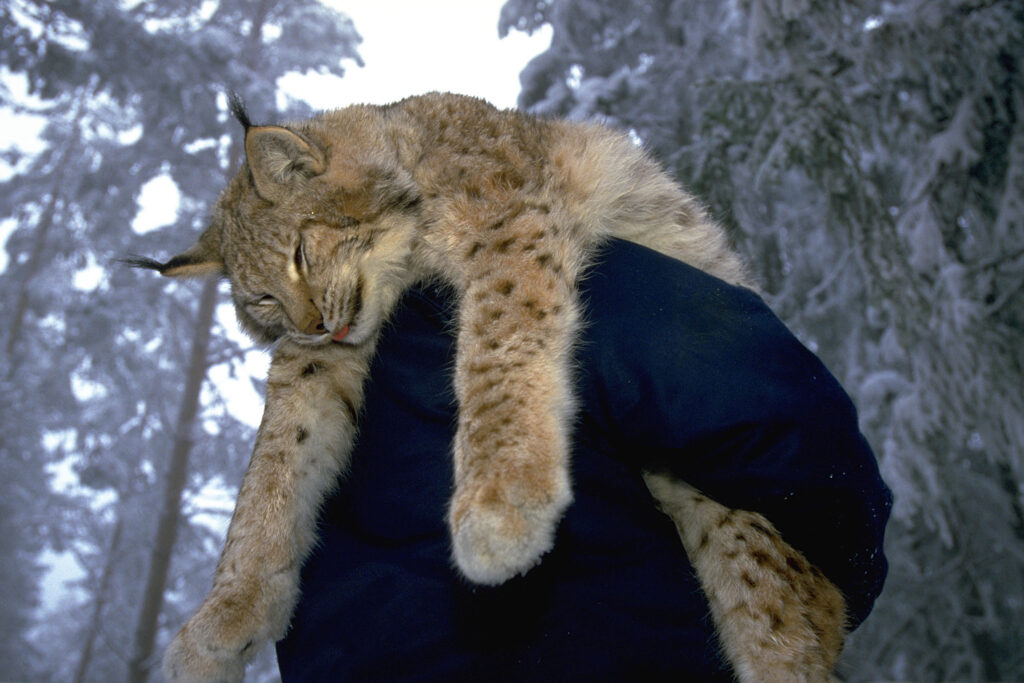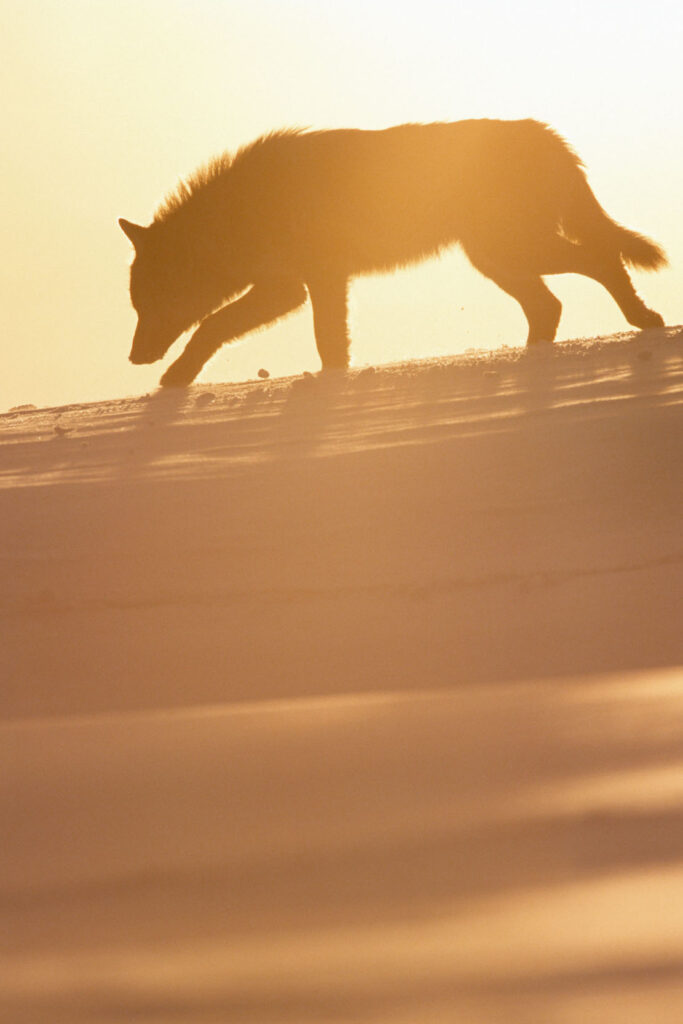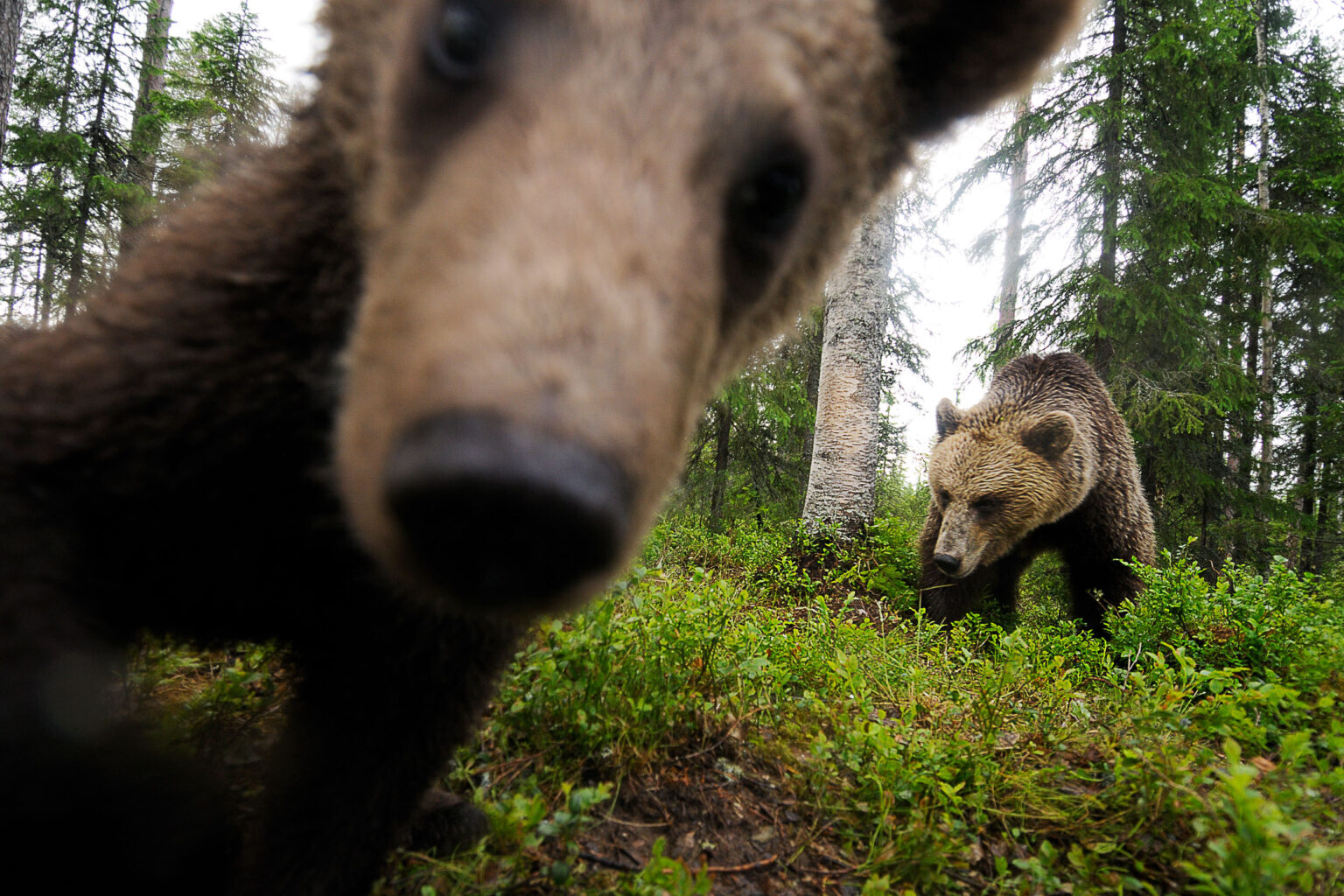IMPORTANT RIGHT NOW
In 2023, Sweden’s government allowed quota hunting of no less than 188 lynx, 57 wolves and 648 bears, in an attempt to rapidly lower their numbers. This hunt continues in 2024. A shock for a country where more than 7 out of 10 people want these wild animals in long term viable numbers. So far, this clear break against EU Environmental law has come under the radar of most EU media.
Why is the fate of Sweden’s carnivores relevant to Europe?
In the EU, Sweden has officially held a high profile as a green and environmentally friendly nation, working for “sustainable development”. Justified or not, many Europeans have seen Sweden as a role model in this field. In fact, a substantial share of Europe’s carnivores survived in Sweden, and their comeback story has been celebrated.
Since Sweden is now rapidly backtracking and bringing down predator numbers near, or past unsustainable levels, other countries might follow suit, referring to “if even Sweden can, why can’t we?”. The new Slovak government already has. That may spell disaster for Europe’s carnivores, biodiversity, and wildlife.
100 years of carnivore conservation being undone
The slow comeback of Sweden’s large carnivores over the last 100 years, has rightly been hailed as a major conservation success story. From an almost zero level, carnivore numbers have risen towards the minimum requirements for long term viability. A century of focused work, far from done, but moving towards the goals agreed in Sweden and in the EU.
This is now rapidly being undone, with the government’s ambitions to bring carnivore numbers down as low as legally possible. In 2023, for the first time ever, there was quota hunting also of wolverine. All of Sweden’s carnivores are strictly protected species within the EU, covered by the Bern convention, and they are all (except the human) on Sweden’s Red list.
Why is this happening? It seems to be part of a political positioning, hoping to win over a small but vocal and influential special interest group, the hunters’ organisations. In a tight race for political majority in Sweden, the 300,000 hunters (3% of the Swedes) have obviously been identified as a group of pivotal importance.
Wildlife management and democracy
This policy change really poses a democratic challenge. Let us use the lynx as an example. In Sweden, there is a massive and growing support for the lynx. This has been repeatedly proven in official opinion surveys over the last 20 years. In the latest survey, from 2022, 80 percent of the respondents were in favour of a long term viable lynx population in Sweden. Even more so among the younger Swedes, where trophy hunting of lynx increasingly seems to be seen as completely unreasonable. If you have 80 percent who want to have a viable lynx population, and 3 percent that are against it, which would be the most democratic decision to make?
Less than 3% of Swedes are registered hunters. In a recent survey in the EU (“Understanding rural perspectives”, 2022), interestingly enough, only 1 out of 3 farmers (33%) feel well-represented by the farming interest groups. While less than half (46%) of hunters feel well represented by hunting interest groups. Again, another democratic challenge. How representative are such special interest organisations, even for the special interest groups that they are claiming to represent? Many of them self-appointed voices for “the countryside”, whilst opinion polls often show that people living in the countryside don’t necessarily agree with them.
It could be seen as a political problem, to say the least, that Sweden allows a large portion of its decision making around wildlife management and hunting quotas, to be so heavily influenced by people that are deeply connected to the hunters’ special interests. Taking away carnivores, or a very large share of them, eliminates their key role in nature. Hunting can’t fill that role, even if many hunters would like it to be so.
In nature, it is essential for the variety of life forms, also called biodiversity, to have the chain of “top-down” pressure and selection remain, or be put back in place.
Links
- Understanding rural perspectives: A survey of attitudes towards large carnivores in rural communities (10 European organisations, Nov. 2023)
- Attitude survey about large carnivores and wildlife management in Sweden (Swedish University of Agricultural Sciences, SLU, 2021, Swedish)
- Wolves contribute to disease control (Nature, 2019)
- Why large carnivores? (Sweden's Big Five, 2024)


Image credits
From the top: 1 Staffan Widstrand, 2 Magnus Elander, 3-4 Staffan Widstrand
